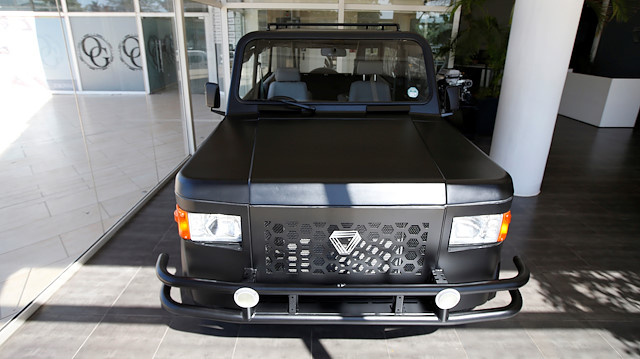
Nevertheless, industry officials say the biggest hurdle to developing the market for new cars is dumping from countries such as Japan, where strict vehicle inspections force cars out of circulation after just a few years.
They say this distorts the market by allowing dealers to buy the cars at scrap prices and export them to Africa.
They blame the cheap imports for killing off assembly sectors in a number of African countries including Nigeria, which built around 150,000 cars per year until the 1980s.
Political will is needed to change that, and without it there is little point in considering a country for local production, according to VW's Schaefer.
"The markets ... are literally not functioning right now due to importation of used vehicles," he said.
In Kenya, the government plans to wind down imports of cars more than three years old by 2021. Exceptions will be made for passenger vehicles with 1.5 litre or smaller engines.
The policy could see mid-range imported models double in price, according to the 300-member Kenya Auto Bazaar Association (KABA). The lobby group has taken out ads in local newspapers denouncing the policy and is demanding a meeting with Kenya's president.
Mark Oburu, KABA's vice-chairman, said the move would hit an industry that delivers 85 percent of Kenyan car purchases.
"The middle class will not be able to own a vehicle of their choice," he said.
In the Nairobi bazaar, Grace was shopping for her eldest son's first car. She said she could not afford to buy a new one.
"If they don't rescind that decision, we will be on boda bodas (motor-bikes)."
Both Ghana and Nigeria have also pledged to tackle the issue. Nigeria hiked taxes on imported used cars in 2014, but smuggling has undermined that effort to boost demand for local production, according to manufacturers and government officials.
Used cars are also among the leading imports in many African countries, and governments will have to wean themselves off the associated tax revenues.
There are other stumbling blocks: access to financing is limited, and countries that don't host assembly plants must also be persuaded to limit used imports and reduce tariffs on African-made vehicles. That will be hard to do if the only outcome they see is higher sticker prices.
"The purpose is not to take the most lucrative slice of the industry," said Ghana's minister of trade and industry, Alan Kyerematen, suggesting that neighbours could produce components for his country's assembly plants.
Auto executives acknowledge the challenges but point to a famous precedent.
When VW and GM entered China in the 1980s and 90s, vehicle ownership rates were lower than in many African markets. Today, those two companies alone sell over 3.5 million vehicles annually in China.
"Everybody was laughing, saying China doesn't need cars, they only need bicycles," Schaefer said.














